
Every year students from CBSE board wait for their examination results. However, it is an overwhelming situation where some students feel:
“What if I fail by just one or two marks?”
The question is common but arises multiple times in the minds of Class 10th and Class 12th CBSE students. This is because sometimes one or two marks can decide the pass, fail, compartment means overall career.
Explore how to apply for revaluation in cbse 10th .
So, the main query is Do CBSE Give Grace Marks? In simple words the answer is: Yes, CBSE does provide grace marks in exceptional cases.
The Central Board of Secondary Education provides a detailed grace marks policy to learners, parents and schools which help students to understand the step-by-step guidelines of passing.
In this blog, we will explore and understand everything about grace marks, how CBSE awards them, their eligibility criteria, maximum limits and at last you have a clarity how CBSE marking system works.
Contents
What are Grace Marks in CBSE?
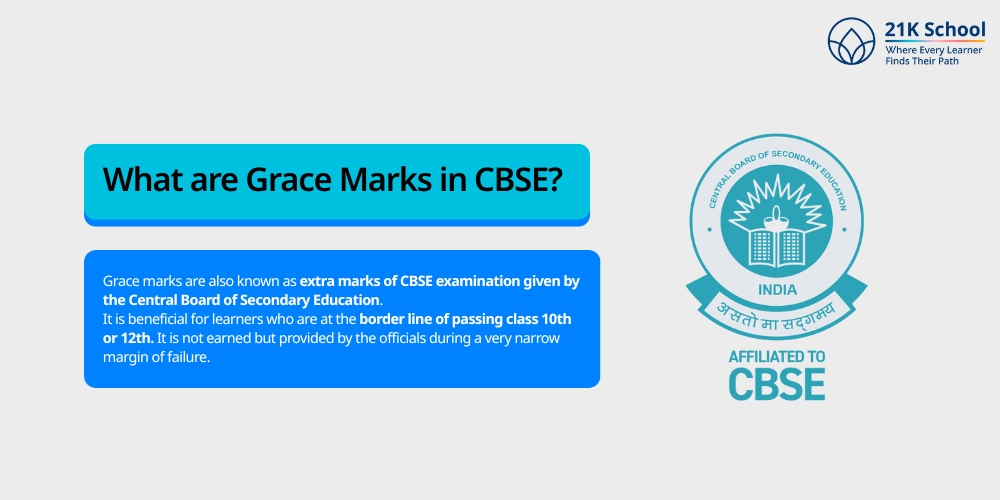
Grace marks are also known as extra marks of CBSE examination given by the Central Board of Secondary Education .
It is beneficial for learners who are at the border line of passing class 10th or 12th. It is not earned but provided by the officials during a very narrow margin of failure.
In simple words, if the passing marks of a subject is 33 and a student scores 31 or 32 then CBSE board gives 1 to 2 marks as a grace for passing the examination.
Go through a detailed analysis on how to get good marks in exams .
Do CBSE Give Grace Marks – CBSE’s Guidelines

Go through the detailed instructions by CBSE board related to grace marks. It helps learners to understand academic standards and support they can avail:
1. Definition and Purpose

The main purpose of grace marks given by CBSE board is, it acts as a safety net for students which prevent them from learning the whole grade.
It directly prevents them from unnecessary failures due to minor shortfalls. Must explore what are the passing marks out of 80 in CBSE .
2. Why did CBSE Introduce Grace Marks Policy?

The main objective of introducing grace marks policy by CBSE board is to provide fairness to student welfare and consistency to maintain the credibility of board results.
3. Difference Between Grace Marks and Regular Marks

Regular marks are earned by learning the whole grade and appearing in exams, internal assessments , or practicals.
To know more about exam scores, understand what the passing marks out of 50 in CBSE .
On the other hand, grace marks are given by CBSE board while calculating the answer sheet to help students who are at the borderline of passing the examination.
4. Historical Context and Evolution

Initially, CBSE gave moderation marks. It consists of compensations for difficult papers.
Over the years, CBSE has used grace marks for students short by 1 to 8 marks and more based on the situation. However, there is no confirmed maximum mark. Go through CBSE FAQ’s for confirmation.
5. Eligibility Criteria
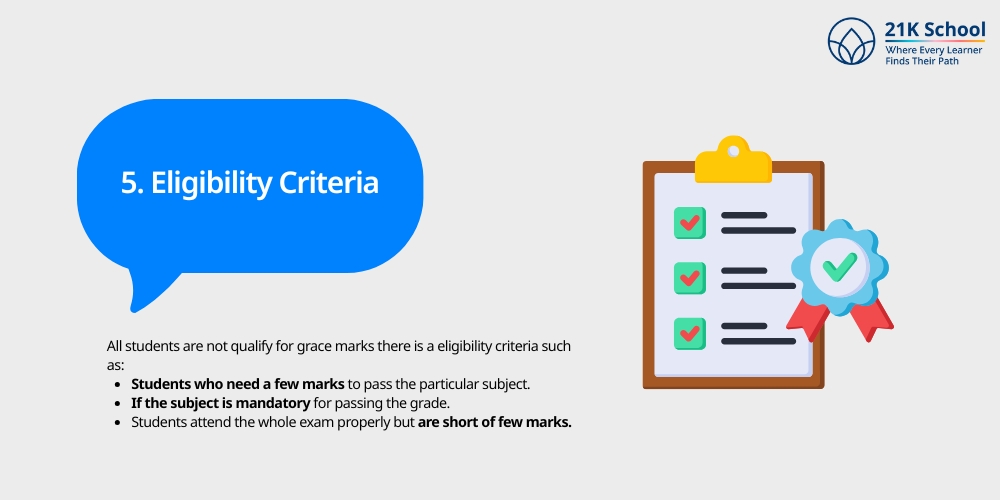
All students are not qualify for grace marks there is a eligibility criteria such as:
- Students who need a few marks to pass the particular subject.
- If the subject is mandatory for passing the grade.
- Students attend the whole exam properly but are short of few marks.
6. Maximum Limits
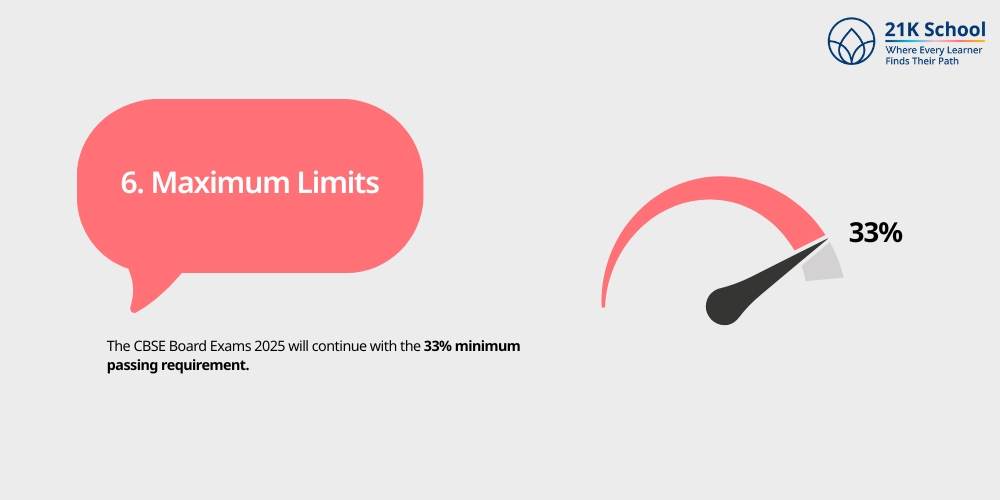
The CBSE Board Exams 2025 will continue with the 33% minimum passing requirement. The grace marks may be given only in exceptional situations and the maximum marks depends on CBSE officials and can vary based on situations.
7. Conditions for Awarding

Some conditions such as grace marks only give up to some extent of passing. Also, it is not applicable if the student is unable to write most of the questions properly.
CBSE Passing Criteria Explained
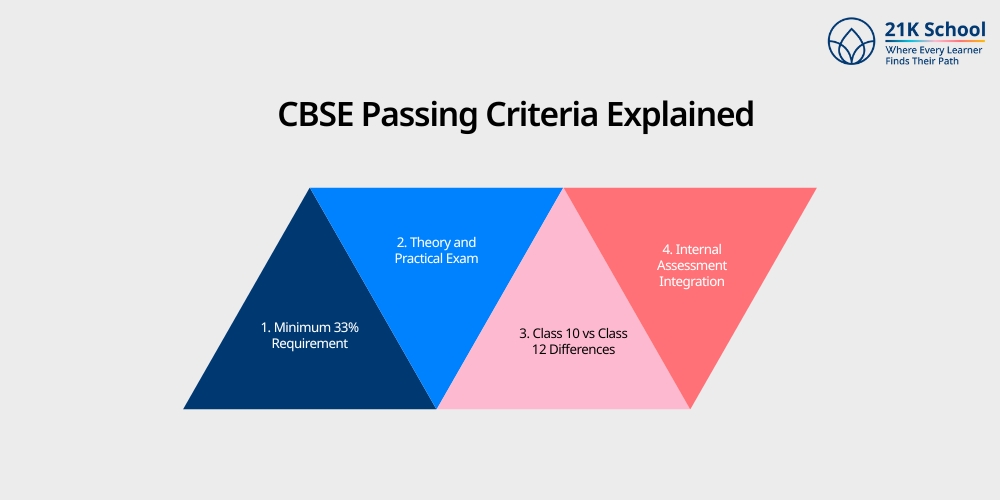
Go through a official passing criteria of CBSE board:
1. Minimum 33% Requirement
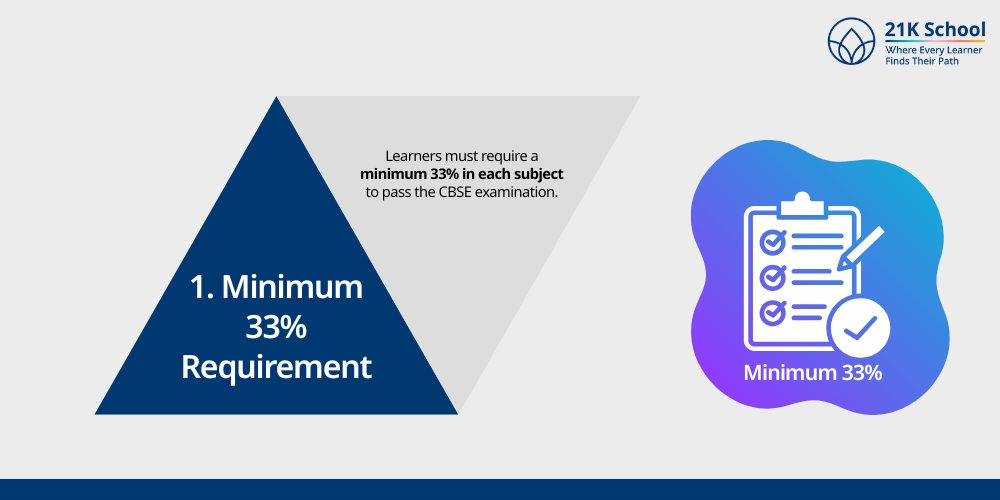
Learners must require a minimum 33% in each subject to pass the CBSE examination.
2. Theory and Practical Exam
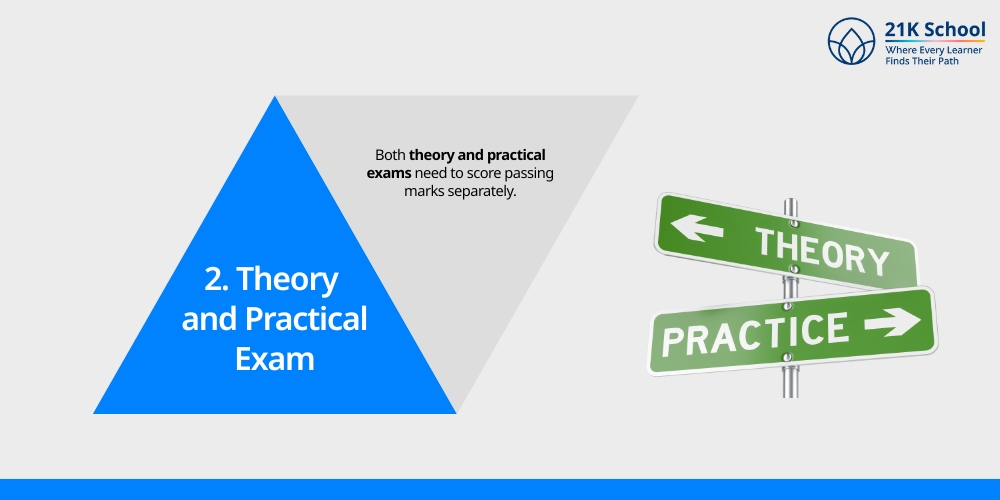
Both theory and practical exams need to score passing marks separately.
3. Class 10 vs Class 12 Differences
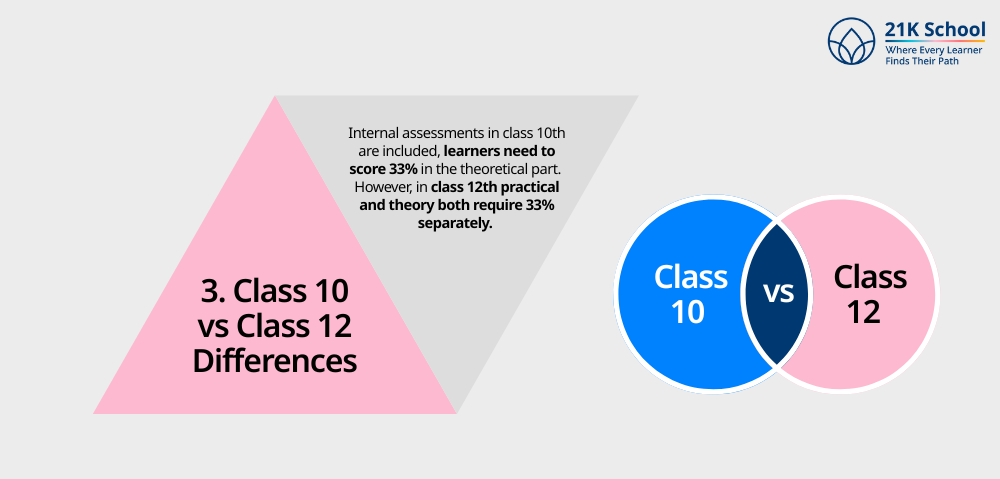
Internal assessments in class 10th are included, learners need to score 33% in the theoretical part.
However, in class 12th practical and theory both require 33% separately.
4. Internal Assessment Integration
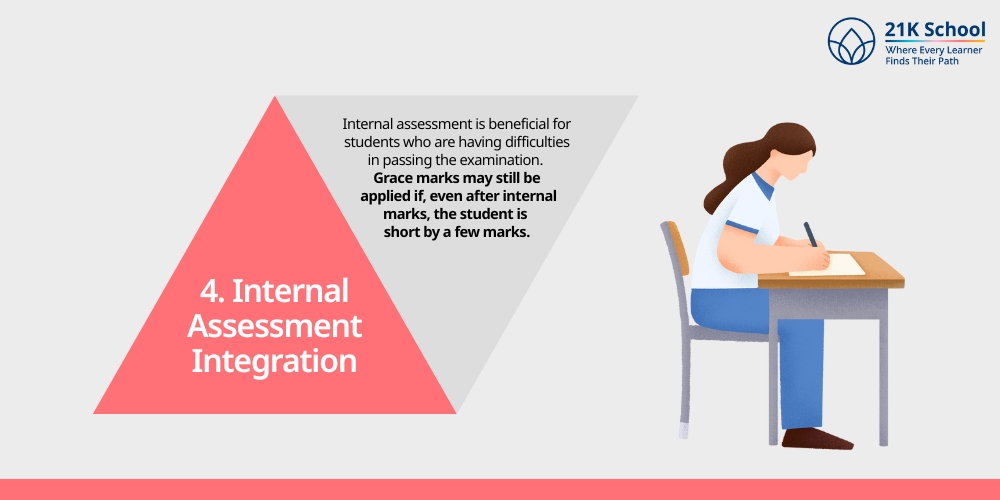
Internal assessment is beneficial for students who are having difficulties in passing the examination. Grace marks may still be applied if, even after internal marks, the student is short by a few marks.
How Are Grace Marks Calculated?
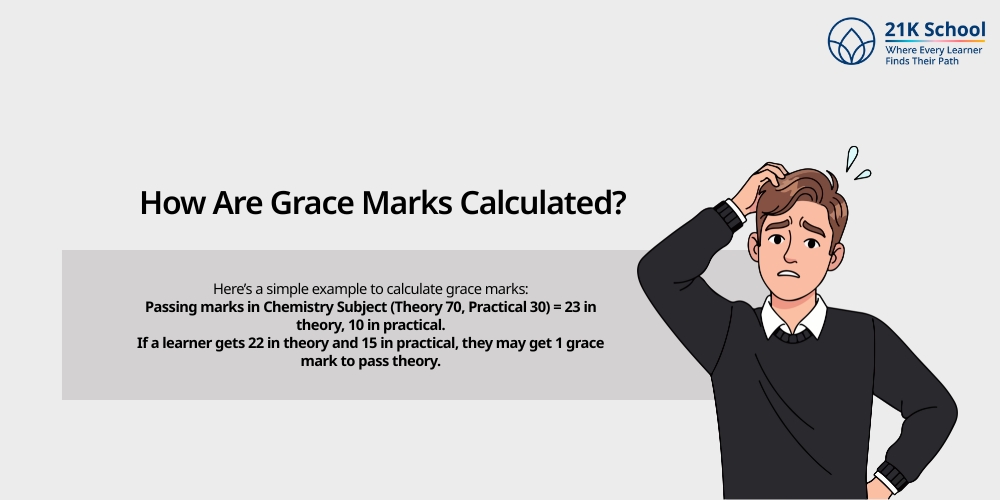
Based on students’ shortfall, grace marks are calculated. Here’s an official SCHEME of examination and pass criteria.
- If a student is failing due to 1 or 2 marks, then grace marks are given by the CBSE board in not more than 3 theory papers.
- Depending on the student’s circumstances, a shortage of 3 to 5 marks CBSE board may still consider.
- Grace marks are applied to the theory part of the CBSE examination.
Here’s a simple example to calculate grace marks:
Passing marks in Chemistry Subject (Theory 70, Practical 30) = 23 in theory, 10 in practical.
If a learner gets 22 in theory and 15 in practical, they may get 1 grace mark to pass theory.
What You Should Know About CBSE Grace Marks?
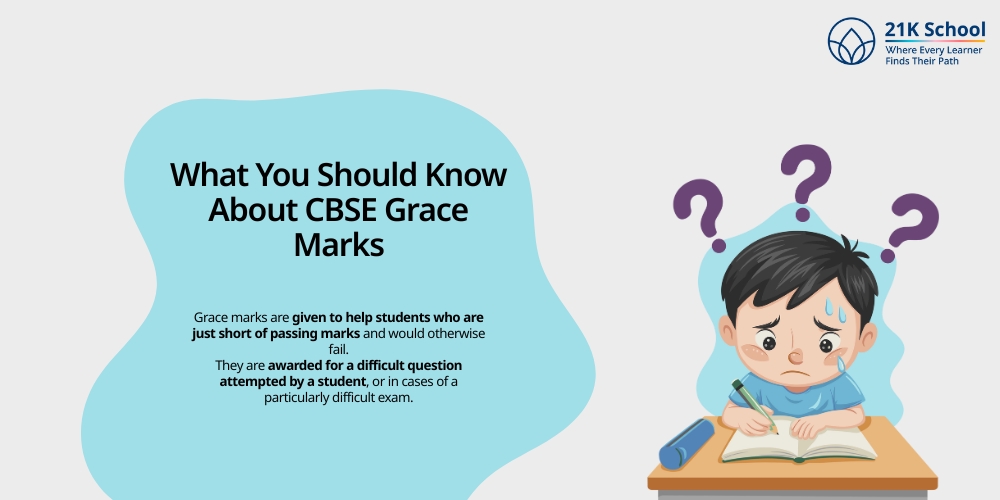
To understand each point in detail here you can read everything you should know about CBSE grace marks:
| S No. | Particulars | Details |
| 1. | Purpose: | Grace marks are given to help students whoare just short of passing marks and would otherwise fail. |
| 2. | Criteria: | They are awarded for a difficult questionattempted by a student, or in cases of a particularly difficult exam. |
| 3. | Limit: | A maximum of 8 marks in total can be given. However, it can vary based on circumstances. |
| 4. | Invisibility: | Grace marks are not shown separately on themark sheet; the final result reflects the adjusted score. |
| 5. | Not a substitute forstudy: | Grace marks should not be relied upon as a replacement for hard work. |
Class 10 vs Class 12 Grace Marks
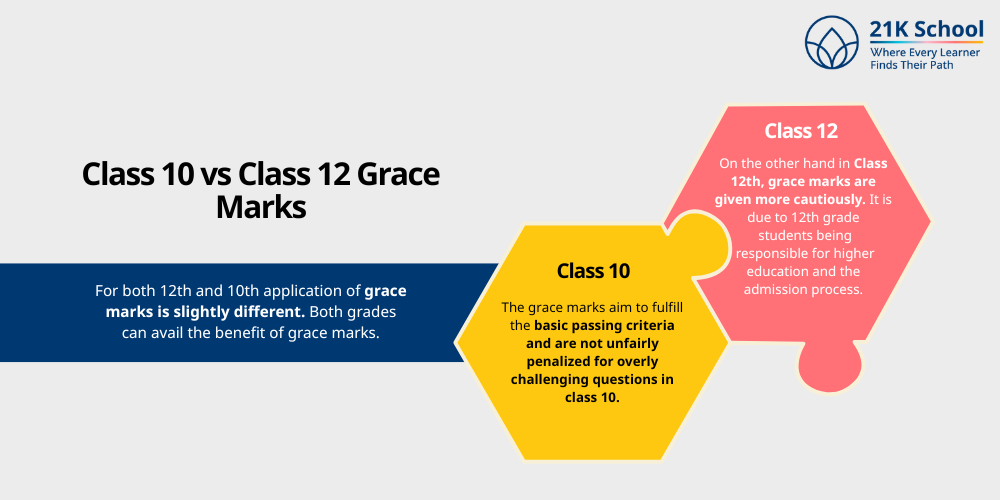
Grace marks in CBSE exam help students to tackle exceptionally difficult questions.
However, for both 12th and 10th application of grace marks is slightly different. Both grades can avail the benefit of grace marks.
As we know Class 10th is a foundation stage of CBSE board exams, the body helps to reduce excessive failure rate in this grade.
The grace marks aim to fulfill the basic passing criteria and are not unfairly penalized for overly challenging questions in class 10.
On the other hand in Class 12th, grace marks are given more cautiously. It is due to 12th grade students being responsible for higher education and the admission process.
However, it makes sure to give share marks specially in unexpected tough or challenging questions.
Grace Marks vs Compartment Exams
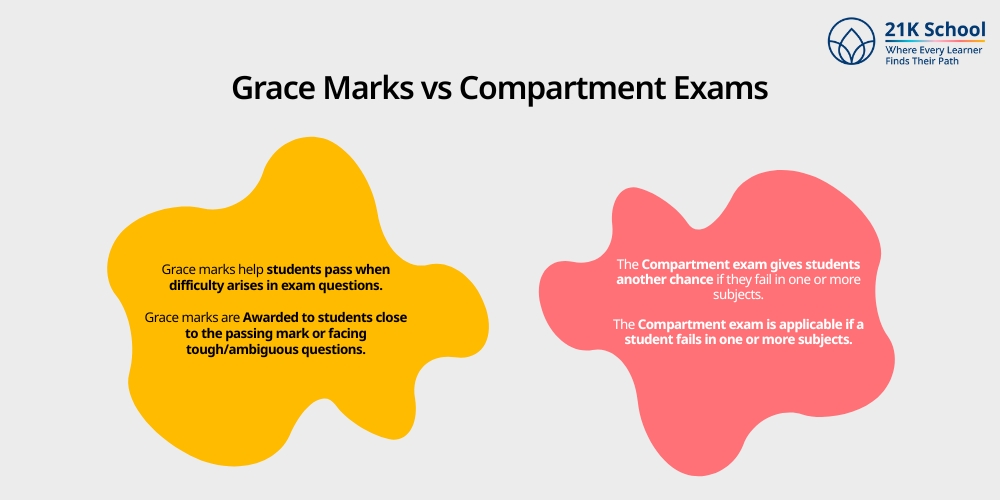
Given below is a quick comparison between grace marks and compartment exams :
| S No. | Aspect | Grace Marks | Compartment Exam |
| 1. | Purpose | Grace marks help studentspass when difficulty arises in exam questions. | The Compartment examgives students another chance if they fail in one or more subjects. |
| 2. | Eligibility | Grace marks are Awarded to students close to the passing mark or facingtough/ambiguous questions. | The Compartment exam is applicable if a student failsin one or more subjects. |
| 3. | Impact | Grace marks can directlyincrease scores and prevent failure. | The Compartment examrequires re-appearing inexams with preparation. |
| 4. | Time Factor | Grace marks applied instantly during result evaluation. | The Compartment examwas conducted later, leading to delay in results. |
Debunking Myths on CBSE Grace Marks
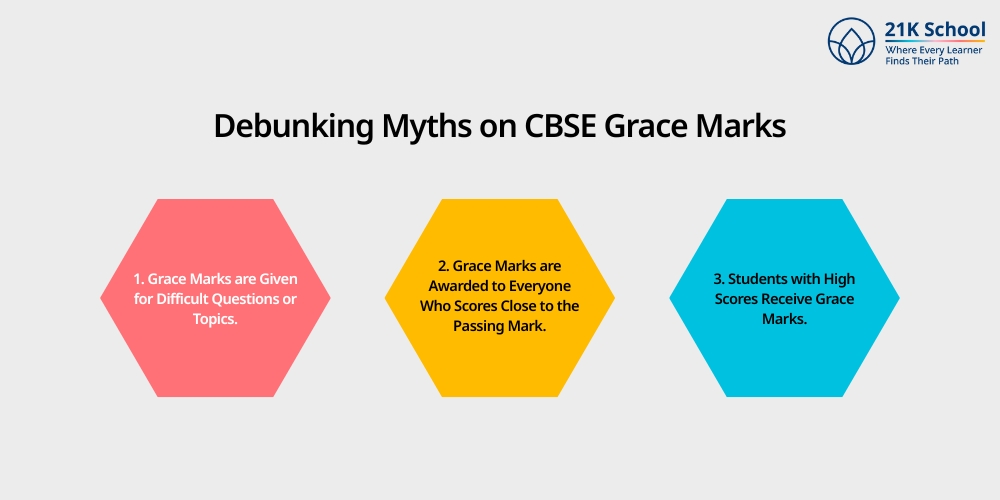
Parents, facilitator and students often believe some common myths about grace
marks like:
1. Grace Marks are Given for Difficult Questions or Topics.
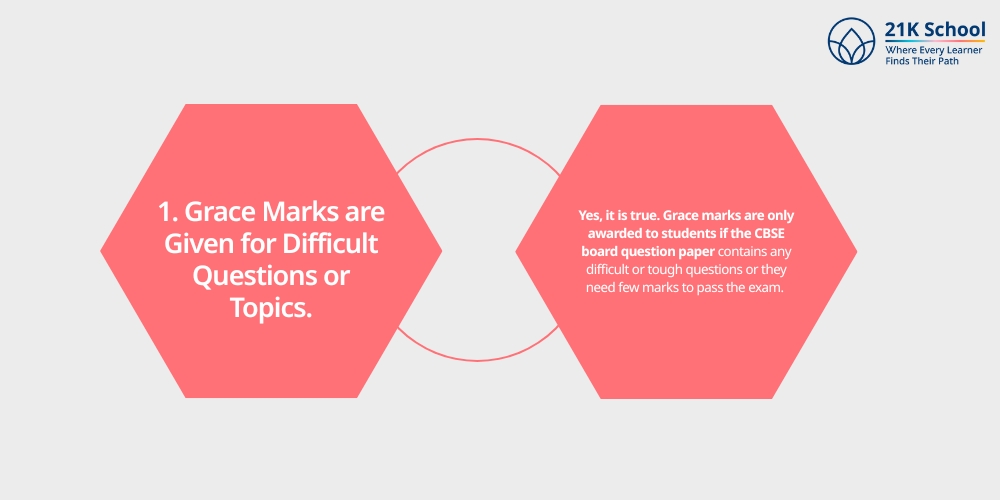
Yes, it is true. Grace marks are only awarded to students if the CBSE board question paper contains any difficult or tough questions or they need few marks to pass the exam.
2. Grace Marks are Awarded to Everyone Who Scores Close to the Passing Mark.
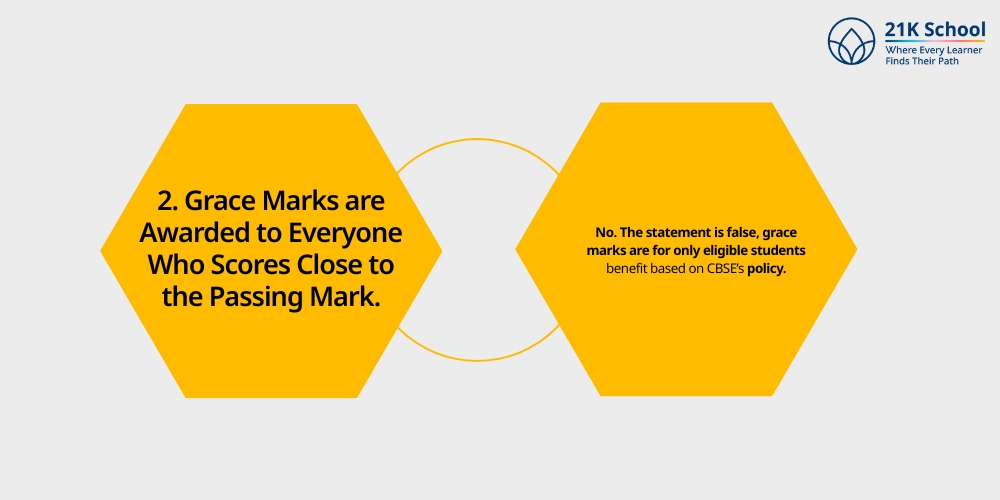
No. The statement is false, grace marks are for only eligible students benefit based on CBSE policy.
3. Students with High Scores Receive Grace Marks.
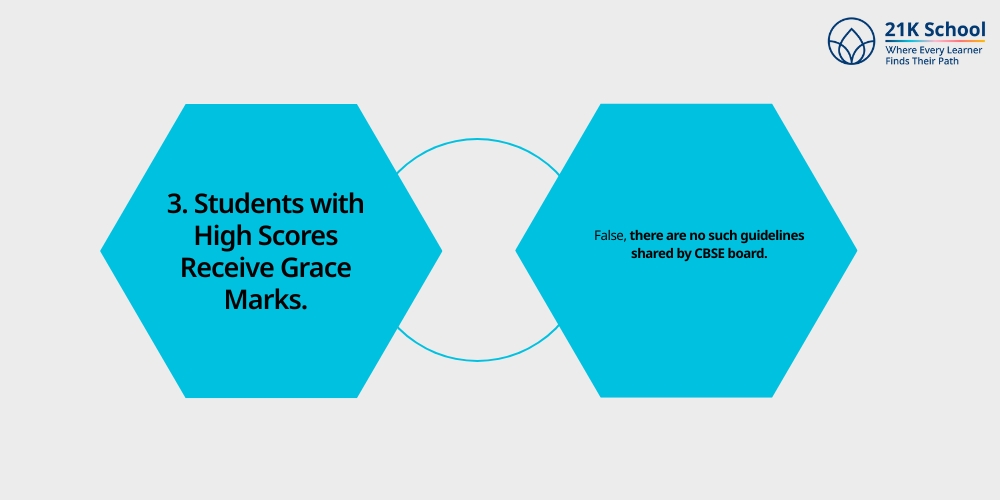
False, there are no such guidelines shared by CBSE board.
Conclusion
So, the answer of Do CBSE Give Grace Marks? is Yes, they do. There are some specific conditions and limitations for students.
Grace marks is an ideal opportunity for CBSE students to get an escape from minor shortfall marks which directly leads to avoiding the waste of one year.
The grace marks policy created by CBSE board is to provide support and fair environment for students mental health . Grace marks secure students’ futures for continuous learning .


